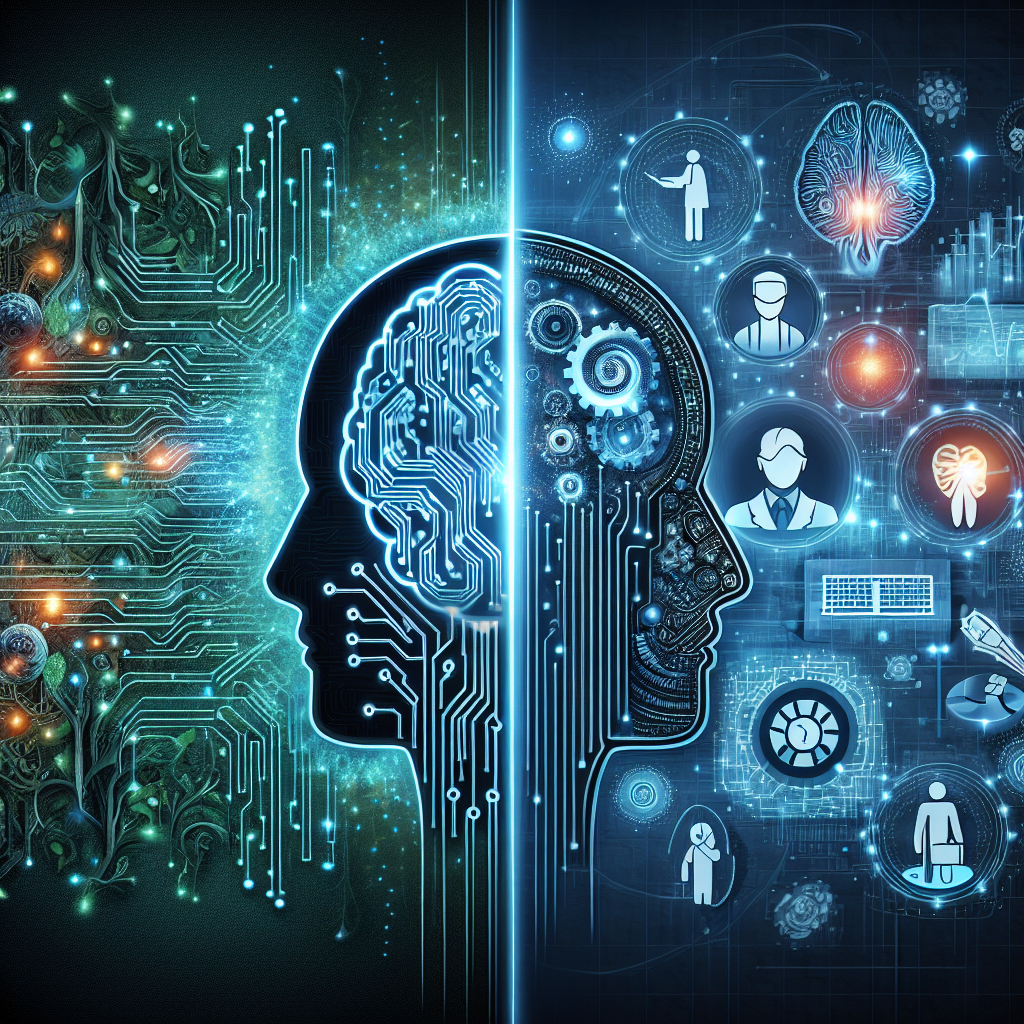Artificial General Intelligence (AGI) is a term that refers to the ability of a machine to perform any intellectual task that a human can do. This includes tasks such as reasoning, problem-solving, understanding language, and learning from experience. While AGI is still a futuristic concept, the rapid advancements in artificial intelligence (AI) are already reshaping the job market in profound ways.
The impact of AI on the future of work is a topic of much debate and speculation. Some experts believe that AI will create new job opportunities and increase efficiency in the workplace, while others fear that it will lead to widespread job displacement and economic disruption. In this article, we will explore how AI, including AGI, is impacting the job market and what it means for the future of work.
AI and Automation
One of the most significant impacts of AI on the job market is automation. AI-powered systems are increasingly being used to automate routine tasks in industries such as manufacturing, logistics, and customer service. This has already led to job losses in some sectors, as machines can perform these tasks more quickly and efficiently than humans.
However, automation also has the potential to create new job opportunities. For example, as machines take over routine tasks, humans can focus on more complex and creative work. In addition, the development and maintenance of AI systems require skilled workers, such as data scientists and AI engineers, creating new job opportunities in these fields.
AI and Skills Development
As AI becomes more prevalent in the workplace, there is a growing demand for workers with technical skills in AI and data analysis. According to a report by the World Economic Forum, AI-related skills such as machine learning and data analysis are among the fastest-growing in demand. This means that workers who develop these skills will be well-positioned to take advantage of the opportunities created by AI.
However, there is also a concern that AI may exacerbate inequality in the job market. Workers who do not have the opportunity to develop these technical skills may be left behind as AI becomes more prevalent. This is why it is important for governments, businesses, and educational institutions to invest in training programs that help workers develop the skills needed to thrive in an AI-driven economy.
AI and Job Displacement
One of the biggest concerns about AI is the potential for job displacement. As machines become more capable of performing a wide range of tasks, there is a fear that many jobs will become obsolete. This is particularly true for jobs that involve routine tasks, such as data entry, customer service, and manual labor.
However, it is important to note that AI is also creating new job opportunities. For example, the rise of e-commerce has created new jobs in areas such as online marketing, logistics, and customer service. In addition, as AI becomes more prevalent, there will be a growing demand for workers who can develop, maintain, and oversee AI systems.
FAQs about AGI and the Job Market
Q: Will AI replace all jobs in the future?
A: While AI has the potential to automate many routine tasks, it is unlikely to replace all jobs. AI is best suited for tasks that are repetitive and rule-based, while humans excel at tasks that require creativity, empathy, and critical thinking.
Q: How can workers prepare for the impact of AI on the job market?
A: Workers can prepare for the impact of AI by developing technical skills in areas such as machine learning, data analysis, and programming. In addition, workers should focus on developing skills that are difficult for machines to replicate, such as creativity, emotional intelligence, and problem-solving.
Q: What role should governments play in addressing the impact of AI on the job market?
A: Governments have a crucial role to play in addressing the impact of AI on the job market. They can invest in training programs that help workers develop the skills needed to thrive in an AI-driven economy, as well as implement policies that support workers who are displaced by automation.
Q: Is there a need for regulation to govern the use of AI in the workplace?
A: There is a growing consensus that regulation is needed to govern the use of AI in the workplace. This includes regulations that protect workers from discrimination and ensure the fair treatment of employees in AI-driven workplaces.
In conclusion, AI, including AGI, is already having a significant impact on the job market. While automation has the potential to displace some jobs, it also creates new opportunities for workers with technical skills in AI and data analysis. To thrive in an AI-driven economy, workers will need to develop a mix of technical and soft skills that are difficult for machines to replicate. It is also important for governments, businesses, and educational institutions to invest in training programs that help workers adapt to the changing demands of the job market. By taking proactive steps to prepare for the impact of AI, workers can position themselves for success in the future of work.

